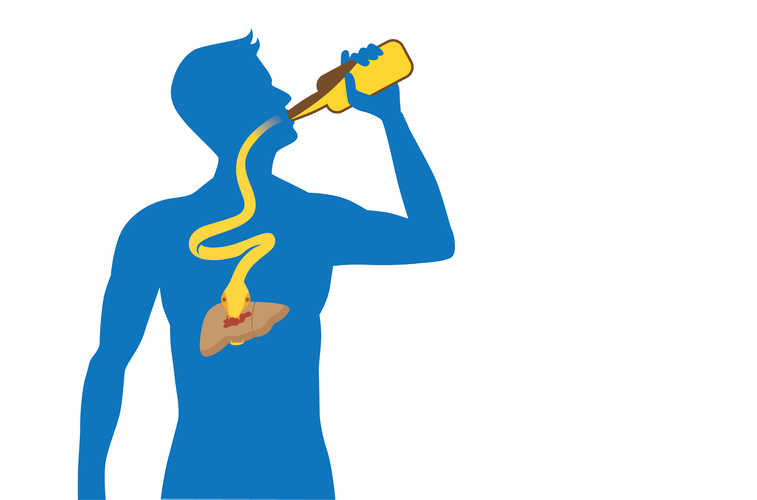TLR4-deficient mice prevented such neuroinflammation, synaptic and myelin alterations, as well as long-term cognitive alterations [105]. Numerous sources of evidence gathered from experiments carried out in rodents show that modifications in the composition of gut microbiota impact in https://minnesotadigest.com/top-5-advantages-of-staying-in-a-sober-living-house/ the brain functions and behavioral aspects [65], including the predisposition to high alcohol consumption [66]. Leclercq et al. [67] found a correlation between leaky gut and inflammation with modifications in scores of depression, anxiety and social interactions in alcohol craving.
Effects of alcohol on adaptive immunity
Contact Gateway Foundation to learn more about how we can help you or your loved one pursue recovery. The frequency at which a person drinks also determines how much it affects the immune system. A person who drinks every day is more likely to have a weakened immune system and experience health complications than someone who rarely drinks or only drinks on occasion. Heavy drinking is more likely to affect a person’s immune system than moderate drinking. Women drinking fewer than two drinks at a time and men drinking fewer than three drinks at a time is considered moderate drinking.
How alcohol impacts the gut
- Communities can create social and physical environments that support people in drinking less alcohol.
- By fermentation of complex carbohydrates, anaerobic bacteria in the gut produce short-chain-fatty acids (SCFAs), which are essential for modulation and mediation of the immune system.
- This disruption can impair balance and cause difficulty in activities like walking and biking, which can result in falls and other injuries.
- And this reduction is equal to that of someone who has been binge drinking for 6 months.
- Multiple mechanisms have been identified underlying the immunosuppressive effects of alcohol.
- But there’s plenty of research to back up the notion that alcohol does lead to weight gain in general.
Years of moderate to heavy drinking can cause liver scarring (fibrosis), increasing the risk of liver diseases like cirrhosis, alcoholic hepatitis, fatty liver disease, and liver cancer. While binge drinking is typically more harmful than occasional drinking, any amount of alcohol can have adverse effects on the body and its ability to fight infections and diseases. Drinking every day or drinking too much alcohol at a time may affect the immune system more than drinking every other day or every Sober House few days, but the healthiest thing to do is abstain from drinking completely. Each of these events is mediated by the activation of nuclear factor kappa B (NFκB), which can be inhibited by alcohol consumption and thus prevent the production of pro-inflammatory cytokines. In vivo studies have confirmed that binge drinking with a blood alcohol concentration (BAC) of approximately 0.4% can reduce the production of various inflammatory cytokines including interleukin-6 (IL-6), IL-10, and IL-12.
- Besides in the liver, the enzymes involved in the oxidative metabolism of alcohol also are present in the intestinal mucosa and intestinal bacteria also produce acetaldehyde in the gastrointestinal tract [41].
- Each of these events is mediated by the activation of nuclear factor kappa B (NFκB), which can be inhibited by alcohol consumption and thus prevent the production of pro-inflammatory cytokines.
- Virtually all of these components are affected by alcohol; however, the discussion in the following sections will focus on the first and fourth of these elements.
- Acute alcohol intoxication impairs the antigen-presenting ability of these cells (Mandrekar et al. 2004).
Alcohol distracts the body from other functions
Your symptoms could be triggered by the alcohol itself, or by other ingredients or chemicals found in alcoholic beverages, like wheat, barley, yeast or histamine, explained Rani Maskatia, an allergist-immunologist and medical director of Latitude Food Allergy Care. In addition, alcohol disrupts activity in brain areas that coordinate and control muscle movements. This disruption can impair balance and cause difficulty in activities like walking and biking, which can result in falls and other injuries.
Moderate and Excessive Drinking Defined
Whether the increased viral load measured in SIV-infected chronic alcohol-fed macaques can be attributed to diminished CD8+ T-cell function remains to be established (Bagby et al. 2006; Kumar et al. 2005). Alcohol’s effects on the structural host defense of the gastrointestinal (GI) tract. Alcohol-induced changes in tight junctions cause increased intestinal leaks that lead to translocation of bacteria-derived products such as lipopolysaccharide (LPS).
- 3The HIV (or SIV) set point is the stable viral load that is established in an HIV-infected person after the initial phase of the infection, when the person’s immune systems tries to fight the virus.
- SCFAs also promote the activation of B cells and the development of Treg CD4+T cells—for example, increasing secretion of IL-10 with important anti-inflammatory effects.
- From damaging vital organs to impairing brain function and jeopardizing relationships, the negative consequences of excessive alcohol use are far-reaching.
- “Instead of using larger nanoparticles, we opted for individual iron atoms, which can be distributed more evenly on the surface of the fibrils and therefore react more effectively and quickly with the alcohol,” Mezzenga says.


